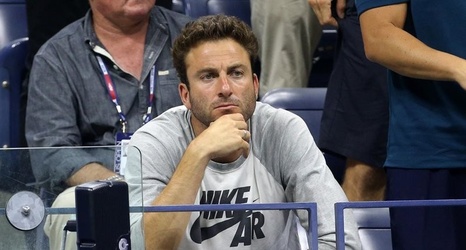Tennis is beginning to clean up the wreckage from Hurricane Gimelstob. Since pleading no contest to a violent crime on April 22, Gimelstob triggered a sort of morality inquiry within the sport that unfolded in real time. Though a California judge, Upinder S. Kalra, ruled that Gimelstob had committed a “violent, unprovoked attack in public in front of children,” Gimelstob initially declined to step down from his various positions within the sport. Under mounting pressure, on May 1, he resigned from both the ATP board and Tennis Channel. But it was a moment of reckoning.
While conflicts of interests are as embedded in tennis as yellow ball—and it’s always been thus—this most recent episode, extraordinary in its unseemliness, opened a portal into the sheer depth of tennis’ conflicts, as well as the ATP’s questionable corporate governance.
